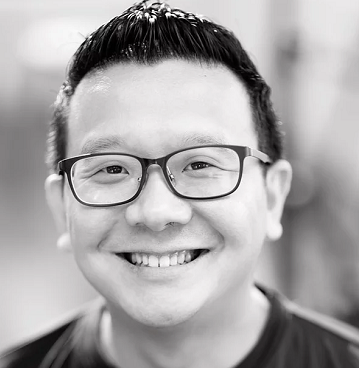Most people who see piles of junked or abandoned bike-share rides simply tut-tut and walk past blaming the local authorities for the mess. One public spirited Burmese man has taken a different approach: he is shipping them to countries in desperate need of transport for low income students. By Jeremy Torr.
Mike Than Tun Win . Courtesy LessWalk
Singapore, 6 June 2019. When ofoBike and oBike set up in Singapore a couple of years ago, users were thrilled. Bikes were available at bus stops and outside MRT trains stations, and users could fire up an app and ride off home at the press of an icon. But the operators hadn’t factored in wear and tear to their operating model.
Soon, broken and damaged bikes piled up on pavements, annoyed would-be riders threw unserviceable machines into bushes in disgust and the pavements became littered with broken bike-share detritus.
There are hundreds of ex-rental bike depots across Asia storing tens of thousands of reject or old bikes This is a bike graveyard in China. Courtesy LessWalk
Inevitably, the government clamped down on operations, and both operators ceased trading. That didn’t solve the disposal problem though – it’s estimated 115,000 bikes needed disposing of – many of those complete wrecks. But equally, many were in decent condition. Some were even still in warehouses, waiting to be deployed.
Enter Mike Than Tun Win, a Singapore-educated, Myanmar-born businessman and philanthropist who builds business on the motto: “We invest in people who live and work on the ground." Than, in an interview with Singapore news outlet Today, said he realised that there was an opportunity to get hold of solid reliable bikes, cheaply, that could be a godsend to poor students back in Myanmar.
“When I grew up, in Mandalay, I used to walk to school,” he said. “But even today, things have not changed. I have seen long lines of children in rural villages walking up to an hour just to get to school. If we could reduce the time they take, they could spend more time studying, gain more knowledge and increase their chances of getting out of poverty,” he said.
And as a graduate in Business, Marketing and Entrepreneurship from Temasek Junior College and NTU Singapore, Than was equipped to make connections that others couldn’t see. Singapore had a surfeit of bikes it didn’t want; Myanmar had students desperate for transport. What more obvious than connecting the two? As Than explains on his newly minted website, LessWalk.com, the solution was “a mission to turn a first world problem into a third world opportunity.”
So this year, he started searching for a way to buy ex-rental bikes in quantity to make shipping them to Myanmar a more economical exercise. He came across several bulk auctions held by the recently-closed companies, and ended up with some 4,000 mostly unused machines originally destined for Ofo and oBike.
“It was a once-in-a-lifetime opportunity,” said Than. “There was an oversupply of bicycles and it was more costly to send them to recycling facilities, so the companies were willing to offload their problem onto me,” he added.
The first batch of ex-rideshare bikes ready to ship. Courtesy LessWalk.
There was a bit of haggling over whether they could keep the company logos, and Myanmar customs imposed customs duties on the bikes, as they looked brand new and worth much more than Than paid.
Undaunted, and spurred by the success of his purchases in Singapore, Than turned his attention to Malaysia, where he managed to buy another 5,000 or so. Initially, and to get the ball (or wheels) rolling, he funded the purchases (about $20 per bike) himself, but when word spread of his LessWalk initiative, other Burma-based companies like GS–Kixx Oil, Daung Capital and IME Group also chipped in.
The way it works is simple, according to Than. “Lesswalk purchases excess capacity of brand new and used bicycles globally, and then we then refurbish them and work with our Ministry of Education to donate these bicycles, for free, to (Myanmar) students living below the poverty line,” he says on his website. “This will benefit the students by allowing them to spend more time in learning and have more focus during class time.”
The first batch of about 4,000 bikes were refurbished and checked before being shipped and distributed to students and families, initially in his hometown Mandalay and in nearby Sagaing.
“So we are not only able to solve the waste created by the first world country, we are also able create opportunity for the needy ones,” he smiles.
Pop an extra seat on the back, and the bikes are family friendly too. Courtesy LessWalk.
The only issues with the bikes are that they come with an app-operated lock, and a solar charger to power it, which all need removing before the bikes can be used normally. “Also, for people living in villages, most of the time they ride around with their little brother and sister (on the back),” said Than. “So I’m planning to add an extra seat at the back, so that they can go to school together.”
Although it’s early days, the attention his unique solution is getting looks like pulling some major sponsors on board. Just as well, as the first shipments were paid for out of his own pocket. But that doesn’t seem to faze Than.
“I might have to spend more money, but it is better that these bicycles are going to help some people rather than going to waste,” he adds.



